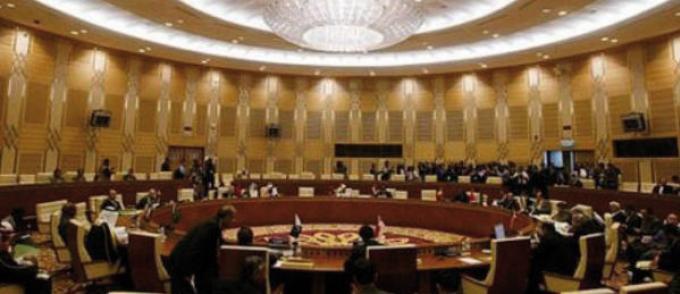 The King of Morocco has urged Muslim nations to address the endogenous reasons behind the crises facing the Muslim world rather than justify these crises by external factors.
The King of Morocco has urged Muslim nations to address the endogenous reasons behind the crises facing the Muslim world rather than justify these crises by external factors.
The Islamic world should stop justifying crises by casting all the blame on external reasons or factors, instead of addressing endogenous causes, underlined King Mohammed VI in a speech read out on his behalf before the 12th summit meeting of the Organization of Islamic Cooperation (OCI) convening in Cairo under the theme “Muslim world: New challenges, expanding opportunities”.
The king who surveyed the situation prevailing in the Islamic world deplored the manifestations of extremism and exclusion prevailing in the world and which open wide the gates to all forms of violence and to the proliferation of hotbeds of tension and terrorist activities.
According to the King of Morocco, the Ummah has significant assets enabling it to stand as a genuine dynamic force and not as a passive spectator.
“Given… our Ummah’s civilizational mission, Islamic countries are today called upon to make a bold, concrete contribution that provides answers to current questionings and concerns, and that helps ensure progress and prosperity for all peoples, guided by the values of coexistence, equality and concord,” he said, pointing out however that for such a contribution to be effective it is necessary that the Islamic world “gives concrete substance to the ideals underpinning its sacred guiding values, strengthens social bonds, promotes its cultural achievements as well as the genius of its people, and fosters tolerant attitudes towards all faiths and cultures.”
From the standpoint of the King of Morocco, the Islamic world should assert itself as “a model that can stand up to the test of positive interaction and constructive dialogue with the world around us, its regional groups, economic blocs, faiths and cultures.”
Such a model will not succeed without a collective involvement, he warned, urging Islamic states to build on their vast, diverse and complementary natural and human resources, to rely on their own capacities and to stop justifying crises by casting all the blame on external reasons or factors.
According to the king of the North African country, the OIC does have the capacity and means to trigger this new dynamic and make concrete proposals to deal with the structural problems bearing within them the seeds of violence. The OIC must be an outstanding vector of solutions, he insisted.
About 26 heads of states, kings and presidents from the 56 states are attending the summit, which is being held for the first time in Egypt after the formation of the OIC in 1969. Other states are being represented by high level delegations, with the exception of Syria, whose membership had been suspended by the 3rd Extraordinary Islamic Summit held in Makkah in August 2012 in view of Bashar Al-Assad’s brutal suppression of the Syrian revolt.
Palestine and the situation in Syria figure high on the agenda of the summit which will discuss other conflicts in the Islamic world (Mali, Somalia, Afghanistan and Sudan).
Other items on the agenda focus on ways to enhance economic as well as scientific, cultural and technological cooperation among member states, Islamophobia, and the humanitarian situation in the Islamic world.
 The King of Morocco has urged Muslim nations to address the endogenous reasons behind the crises facing the Muslim world rather than justify these crises by external factors.
The King of Morocco has urged Muslim nations to address the endogenous reasons behind the crises facing the Muslim world rather than justify these crises by external factors.

 The King of Morocco has urged Muslim nations to address the endogenous reasons behind the crises facing the Muslim world rather than justify these crises by external factors.
The King of Morocco has urged Muslim nations to address the endogenous reasons behind the crises facing the Muslim world rather than justify these crises by external factors.